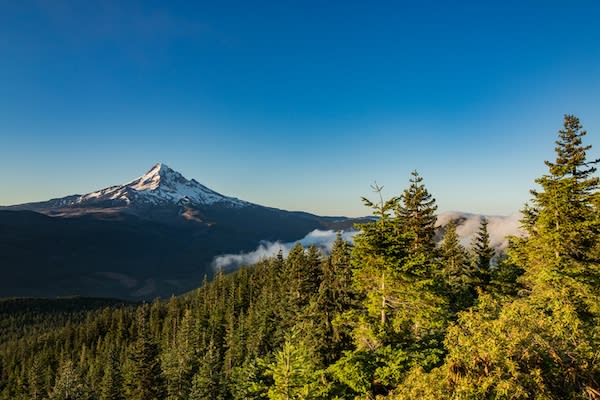Juneteenth is a holiday for all races
[5 MIN READ]
In this article:
-
Two Providence employees give their thoughts in a recent podcast on why Juneteenth is such an important federal holiday in America.
-
Juneteenth commemorates June 19, 1865, when the enslaved Americans in Texas learned they had been freed.
-
The Providence SoCal Diversity Equity & Inclusion Council (SoCal DEI) is leading conversations about issues that are important to people of all races.
When Tiffanie Walker, MSW, was a child in school, she learned all about Jan. 1, 1863 — when President Abraham Lincoln issued the Emancipation Proclamation that freed all slaves in the Confederate South.
But Walker, who is co-chair of the Providence SoCal Diversity, Equity & Inclusion Council (SoCal DEI), was puzzled. Her grandmother had shared with her the importance of Juneteenth, the day when all enslaved people had officially heard the news that they were free — a day that was more than two years after the Emancipation Proclamation went into effect.
While many Black Americans have been celebrating Juneteenth on June 19 since the mid-1800s, it didn’t become a nationally recognized holiday until 2021, when President Joe Biden signed the Juneteenth National Independence Day Act into law. It’s now an opportunity for everyone in the United States to celebrate the day that all enslaved people were truly free.
“Even though it’s not the best part of our history, it’s a time that we actually made something right,” says Walker.
The history of Juneteenth
Despite the fact that it was issued by the President, the Emancipation Proclamation of 1863 could not be implemented in places that were still under Confederate control — which included the westernmost Confederate state of Texas.
That implementation came later. On June 19, 1865, two months after Civil War Confederate General Robert E. Lee surrendered in Appomattox, Virginia, Union General Gordon Granger traveled to Galveston, Texas, to inform slaves there that they were free. His announcement officially put the Emancipation Proclamation into effect and marked the end of slavery.
In the early years, few non-Black Americans celebrated Juneteenth. In fact, some landowners resisted the holiday by forbidding people from using their property for celebrations. As a result, Black Americans often held their Juneteenth celebrations at churches or in rural areas, where they could turn the celebration into a day of observance with horseback riding, fishing and other outdoor activities.
On Jan. 1, 1980, Juneteenth became an official state holiday in Texas. Over the next 30 years, other states followed by recognizing it as either a state holiday or a ceremonial observance. But there was still one important hurdle to cross — turning Juneteenth into a national holiday.
In 2016, 89-year-old former teacher and activist Opal Lee walked 1,400 miles from her home in Fort Worth, Texas, to Washington, D.C., to encourage legislators to turn Juneteenth into a national holiday, which they did in 2021.
The importance of Juneteenth
Today, Juneteenth is mostly observed in local celebrations. It has become multicultural, with people of all races participating in lectures and exhibitions of African American culture, and learning about Black people’s role in American history.
“It is a time of reflection,” says Chad Ricks, the clinical director of operations at Providence St. Joseph Hospital Eureka and a member of the Providence SoCal DEI Council. “You can’t really get over your history. It’s important for us to understand what people went through. As they say down South, if you know where you come from, then you know where you’re going.”
Ricks is father to four teenagers, and every year, they talk as a family about what Juneteenth means.
“God didn’t create us to walk in this life alone,” he says. “He wanted us to walk together in fellowship, in friendship and, most importantly, in love.”
Black Caregiver Resource Group at Providence
Caregivers at Providence are deeply committed to improving access to care and overall health in Black communities. Specifically, the Black Caregiver Resource Group (BCRG) is a volunteer, employee-led group dedicated to highlighting the contributions and voices of Black caregivers in our community. Together with the Providence Southern California Diversity Equity and Inclusion Council, it’s deeply involved in spreading awareness of Juneteenth, its cultural impact, and what an important celebration of freedom it is..
A commitment to diversity, equity and inclusion
Providence SoCal Diversity Equity & Inclusion Council (SoCal DEI) is leading some of our efforts to raise cultural awareness and promote diversity to help build appreciation for cultural traditions. We are also starting conversations to help educate people about different cultures as a way to create a more welcoming, equitable and inclusive environment. We support diversity education and awareness initiatives, thus deepening our ability to provide compassionate care and honor human dignity.
Find a doctor
If you are looking for a Providence primary care physician or another provider who can help you start moving, you can search for one who’s right for you in our provider directory.
Download the Providence app
We’re with you, wherever you are. Make Providence’s app your personalized connection to your health. Schedule appointments, conduct virtual visits, message your doctor, view your health records and more. Learn more and download the app.
Related resources
Hear Me Now podcast: Juneteenth
Hear Me Now podcast: Historical significance of Juneteenth
Providence is working to end health inequities
Addressing mental health disparities
Black Americans have played a big role in medicine
This information is not intended as a substitute for professional medical care. Always follow your health care professional’s instructions.




